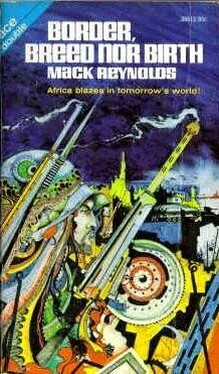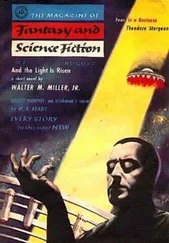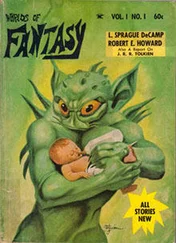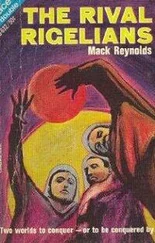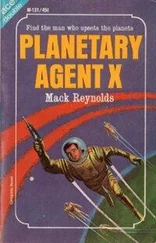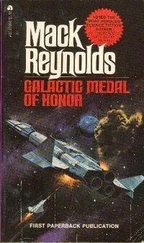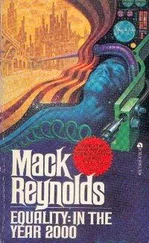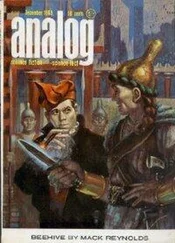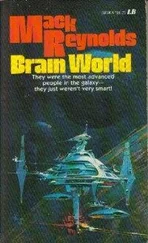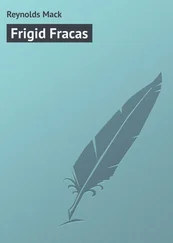Isobel looked at him. “After that tearing down you gave poor Ostrander about the United States, now you rip into the Soviet Complex. Just where do you stand, Dave?”
Dave shrugged her question off, as though there were more important things. “I’m an El Hassan man,” he said. “Let those two overgrown powers handle their own troubles.”
Jimmy Peters spoke up for the first time since Ostrander entered the tent. “You know,” he said, seriously, “I’m beginning to wonder if the world can afford nationalistic patriotism. Haven’t we gone too far along the road to think of ourselves any longer as Americans, or Russians, or French, or West Indians, or whatever? Hasn’t the human race grown up beyond that point?”
Kenny said mockingly, “What! Aren’t you proud of being a West Indian, and a loyal subject of Her Majesty?”
Peters ignored his tone. “Why should I be proud of my country? It was an accident of birth with which I had nothing to do, that made me a West Indian, rather than a Canadian, a Chinese, a Norwegian, or whatever. Intelligently, I should be proud only of things that I, myself, have accomplished.”
Bey said, “If we can stop waxing philosophic for a while and get back to how most efficiently to clobber these Arabs…”
The Hindu entered Kirill Menzhinsky’s small office behind the Indian souvenir shop in the Tangier Zocco Chico and said, “The operative Anton is on the receiver.”
The agent superior of the Chrezvychainaya Komissiya for North Africa looked up from his desk and grunted acceptance of the message. He came to his feet and followed the other into a back room and took his place before a mouthpiece and screen.
The man whose party name was Anton nodded a greeting.
Kirill Menzhinsky said, “It’s about time I heard from you, Anton.”
“Yes. But the situation has been such that it was not easy to report.”
“And now?”
“Briefly, I am at El Hassan’s headquarters. You were correct. He is in actuality Homer Crawford. The others you mentioned are also with him, including the traitor Isobel Cunningham.”
The Soviet Complex’s agent allowed his eyebrows to rise.
Anton said flatly, “The girl has evidently renounced the party and now holds high rank in Crawford’s inner circle.”
“And you?”
“I am rapidly becoming his right-hand man. I am his press secretary and in charge of communications. Early in our acquaintanceship I was able to engineer an attempted assassination. I was able to, ah, save the life of El Hassan.”
The Russian’s eyes narrowed. “The assassins? Is there any chance that they might reveal your little trick?”
Anton grimaced. “I am not a fool, Kirill. Both of them were killed in the assassination attempt. El Hassan was most grateful.”
“I see. And how would you sum up the present situation?”
“This area is swinging rapidly to El Hassan, but any sort of defeat and undoubtedly his followers would melt away. The bedouin are too volatile. Before he ever makes any real headway he will have to take the major commercial and industrial cities such as Dakar, Kano, Lagos, Accra, Freetown, Khartoum, and eventually, of course, Cairo, Casablanca, Algiers and so forth.”
“And our friend El Hassan leans not at all in our direction?”
The man the Party called Anton shook his head. “He leans in no direction, except that which will unite and modernize North Africa. Neither do his immediate followers. They’re a well-knit group and it seems unlikely that I could pry any of them away from him in case it became desirable.”
“I see,” Kirill Menzhinsky muttered. “I understand that a delegation from Moscow has arrived in El Hassan’s camp. Have you contacted them?”
“Certainly not. My orders were to rise in the El Hassan hierarchy and await further orders. None of my current, ah, colleagues have any suggestion that I am identified with the Party. Which reminds me, an American C.I.A. man, Fredric Ostrander, has shown up. The fool seems to be under the impression that El Hassan is a Party tool.”
“I know this Ostrander. Don’t underestimate him, Anton. He’s an extremely competent operative in the clutch, as the Americans call it.”
“Perhaps. But nevertheless, there is no indication that the El Hassan movement leans either to East or West, nor do I see any signs that it is apt to in the future.”
The Russian was scowling. “I see. Then perhaps it will be necessary for us to do something to topple our El Hassan before he becomes much stronger, and to find another to unite North Africa.”
Anton frowned in his turn. “I don’t know. This man Crawford—and his followers, for that matter—are motivated by high ideals. As you have said, North Africa is not ready for our socio-economic system. Men of the caliber of Homer Crawford could bring it into the modern age perhaps more quickly than another.”
Menzhinsky chuckled. “Don’t worry about it, Anton. Such matters of policy will be decided by others than you, or even me. Keep in touch with me more often, in the future, Anton.”
“Yes, Comrade.” His face faded from the screen.
Tamanrasset lies at an altitude of approximately 4,600 feet, about average for the Ahaggar plateau. Around it, such peaks as the Tahat reach 9,600 feet above sea level. The country is rugged, jagged, bleak beyond belief. With the possible exception of Southern Afghanistan in the Khyber area, there is no place in the world more suited for guerrilla warfare and less suited for the proper utilization of modern armor, particularly when the latter is forced to work without air cover.
Homer Crawford, equipped with an old-style telescope, was spread-eagled atop a rock outcropping, his only companion Isobel Cunningham. Directly before him, possibly two miles distant, was the desert city of Tamanrasset, and to the right, a kilometer or so, Amsel, where palatable water was to be found at eighteen meters depth.
“Our friend the colonel is up to something,” he grumbled.
She had a pair of binoculars, of considerably less power than his glass.
“It looks as though Guémama’s boys are on the run,” she said.
“As per orders. The primary theory of partisan warfare is not to get killed. The guerrilla never stands and fights. If the regular forces he opposes can bring him to bay, they’ve got him.” He interrupted himself to clip out, “Look at that tank, darling! There on the left!”
Isobel tightened and looked at him quickly from the side of her eyes. No. He’d said it inadvertently, his mind concentrated on the fighting men below. She had often wondered where she stood with Homer Crawford the man, as opposed to El Hassan the idealist. The tip of her tongue licked the side of her mouth as she surreptitiously took him in. But Crawford the man would have to wait; there was no time, no time.
Isobel swung her glasses. “The one starting to go in a circle? There, it stopped.”
“One of the snipers got its commander,” Homer said. “You can’t fight a tank without the commander’s head being up through the hatch. That’s a popular fallacy. You can’t see well enough to fight your tank unless you’ve got your head up. And that’s suicide when you’re against guerrillas. The colonel ought to send his infantry out first.”
Isobel said, “What did you mean when you said that he’s up to something?”
Homer’s eye was still glued to the eyepiece of his glass. “He’s leaving his entrenchments and sending his vehicles out to capture our… our strong points.”
“You mean our water, don’t you?”
Bey came snaking up to them on his belly. He came abreast of Homer and brought forth his own binoculars. He watched for a moment and then muttered a curse under his breath.
Читать дальше
